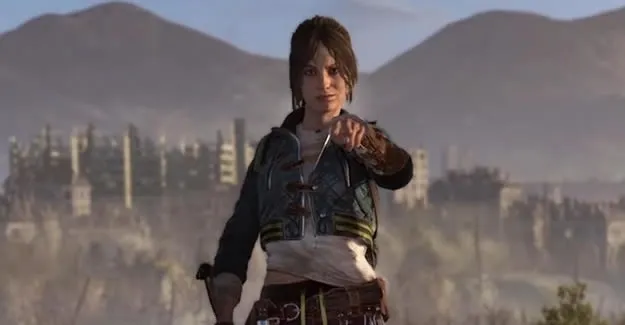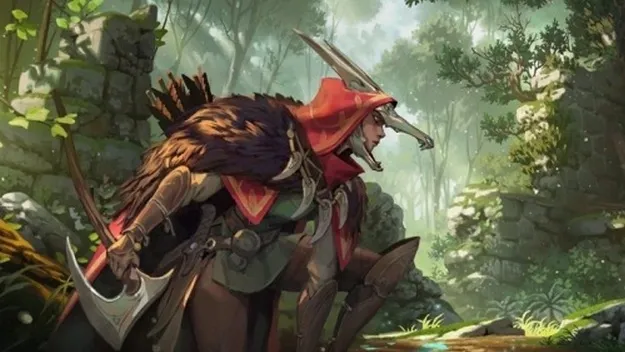Kao the Kangaroo - Review
Polish studio Tate Multimedia returns with its animal mascot. No, it's not a field mouse it's an Australian kangaroo with boxing gloves. As never before, he directly belonged to the elite club of legendary mascots, which included Mario, Sonic, and Crash Bandicoot. Still, it’s nice to see that this series hasn’t been forgotten and has its nostalgic fans.
The story of this reimagination has a classic plot that we often see in platformer games. The main character tries to save missing members of his family. In this case, it is Kao's recently missing sister Kaia, and things are arranged so that Kao finds out the details about their father's disappearance. As he does so, he decides to dig up the mysterious boxing gloves used by his father Koby and embarks on the adventure of his life. Of course, you don't need to know the story from Ka's previous adventures to enjoy the wiggly dialogues between levels.
The game begins with a short interactive tutorial that teaches you the basics of hitting and jumping. Shortly afterward, Kao on the colorful island of Hopalloo talks to the locals, and with the help of his teacher, Koala Walt, embarks on a great adventure.
The main trump cards of this game are its colorfulness and sense of carefreeness. You know that platformer feeling when you’re in a world that doesn’t look realistic and doesn’t have too much logic, but jumping on it is completely enjoyable. Like the Kangaroo he manages to deliver that feeling. But, in addition to its cuteness, it doesn't bring anything particularly interesting - neither in terms of gameplay mechanics nor in terms of level design.
At times, the game is undermined by certain shortcomings that I did not expect. For example, lukewarm vocal acting and humor that quickly becomes tiring can be annoying. Voice acting is all expensive and not to be written off, but it varies greatly from character to character. While some voice actors have managed to immerse themselves in the role they play, a good part of the cast sounds like they read the text from a paper without anyone daring to ask them to repeat the same text with a little more enthusiasm.
The music is a bit better, and even though no melody is overly memorable, the songs fit well into the game and give the wiggly worlds a bit of character.
Like the Kangaroo it is most reminiscent of Playstation 2 era platformers. And that’s not necessarily a bad thing, especially for the nostalgic among us. The problem is that the game does not try to be innovative and almost all of its challenges have already been seen countless times in a sea of similar games, before this naughty kangaroo. So Kao usually tries to do his basic tasks by following the example of others, which wouldn't bother him if he kept following it. If the game was a little more consistent and refined, it would be easier to turn a blind eye to its unoriginality.
The mix of platformer sequences, mini-puzzles, hidden locations, and fights is a great hit. The level is usually followed by segments with a story, followed by an exploration of the main world, to collect a few additional talismans. Talismans are the most important items on which progress through the game depends, that is, they unlock your next location.
This is not the easiest platformer ever. However, they can blame the technical aspects of the game, such as the slippery camera, illogical gameplay mechanics, or unconvincing physics, for a good part of the lives lost in Kao. Fighting is the brightest spot because it causes indescribable pleasure when you punch opponents in your path with your fist.
On the other hand, it seemed to me on several occasions that the weight balance was not affected in any way. Some early levels are unnecessarily more challenging than later ones. In addition, the game still stubbornly adheres to old principles, such as the system of life. You have to be careful not to lose all your lives, otherwise, you will repeat the whole level. It’s not that scary because the game is relatively short, which is reflected in the price as well. Later levels can be a bit longer, but that doesn't even come close to the level of level length in a larger game, such as Super Mario Odyssey. So with all the repetitions of unfinished levels, the first transition takes between 8 to 10 hours of play.
“Like” reads “K.O.” to you, just enough to shed some light on my imaginative subtitle of the review. This is the subtitle with which we come to the biggest flaw that this game currently contains, which will set you back much more than one unfinished level. Namely, saving the position/progress in the game is exclusively automatic. At first, it sounds great - As it turns a bit too modern principles, well done to Kao! Unfortunately, autosave currently contains a big bug - to play after a few rewinds save and take you back to previous levels. This is exactly what happened to me at about half of the game, where I only lost two 100% levels.
It is unforgivable that such a big flaw managed to sneak into the version
of the game that was launched for sale. I certainly hope that this will be
patched up as soon as possible, but this kind of omission says a lot about the
readiness of this game to go out.
Thanks to the described bug and a
bunch of other smaller bugs, Kao the Kangaroo seems unfinished and can in no way
be compared to the better titles of the platformer genre. In addition to all
that, I played the Switch version, which also contains frequent slowdowns and
generally leaves a rather weak impression in terms of performance.
All
in all, apart from the colorful worlds, the sympathetic protagonist, and the
nailing of naive opponents, this kangaroo platformer is, at best, just an
average pastime. And that in the moments while he is working properly, and that
is only a part of the time. And I would therefore recommend to the biggest fan
of the quiver to wait for the price reduction, which will probably be reached by
the patch for the nasty autosave bug.
- colorful merry worlds
- affected by the measure of jumping, exploring, and fighting
- at times there is a style
- often unimaginative level design
- worn-out humor and generally lukewarm vocal acting
- a bug that returns to the wrong recorded positions
- a few minor bugs



















